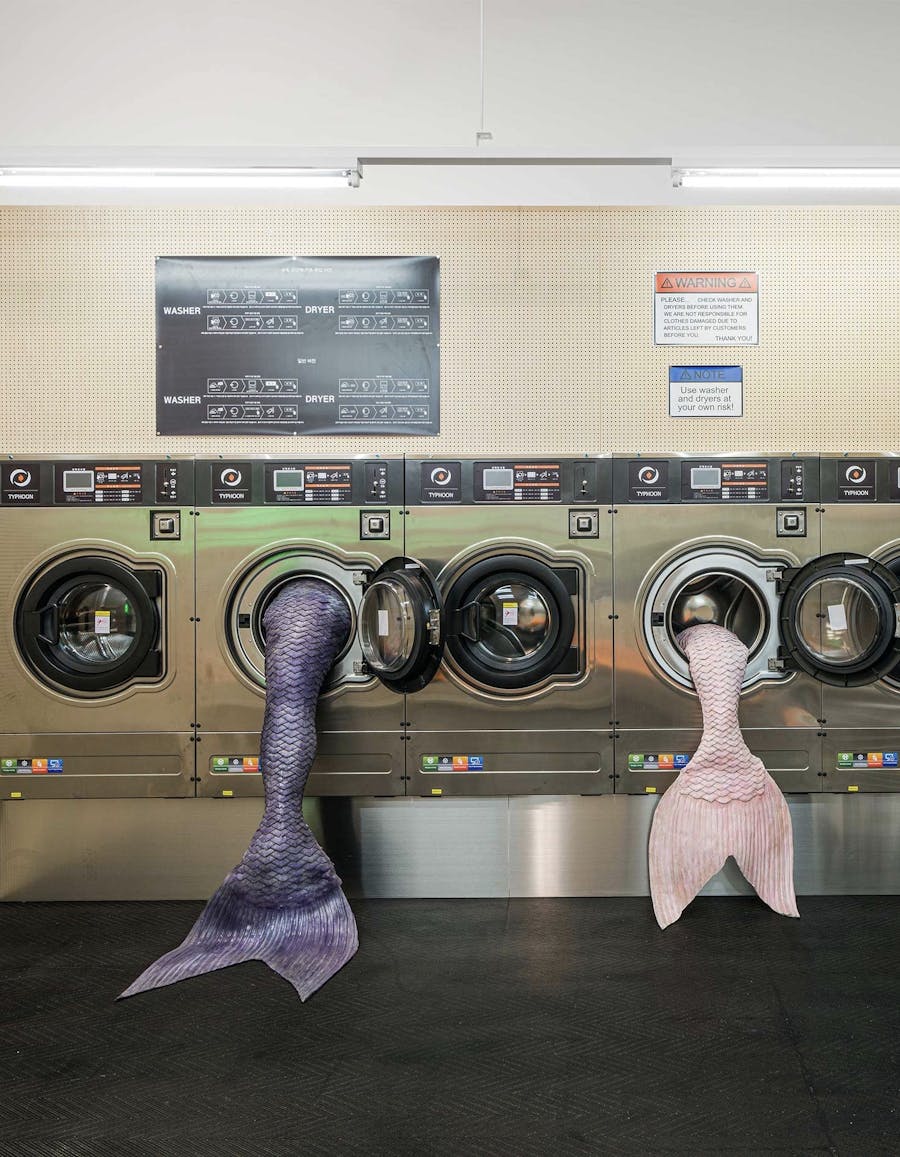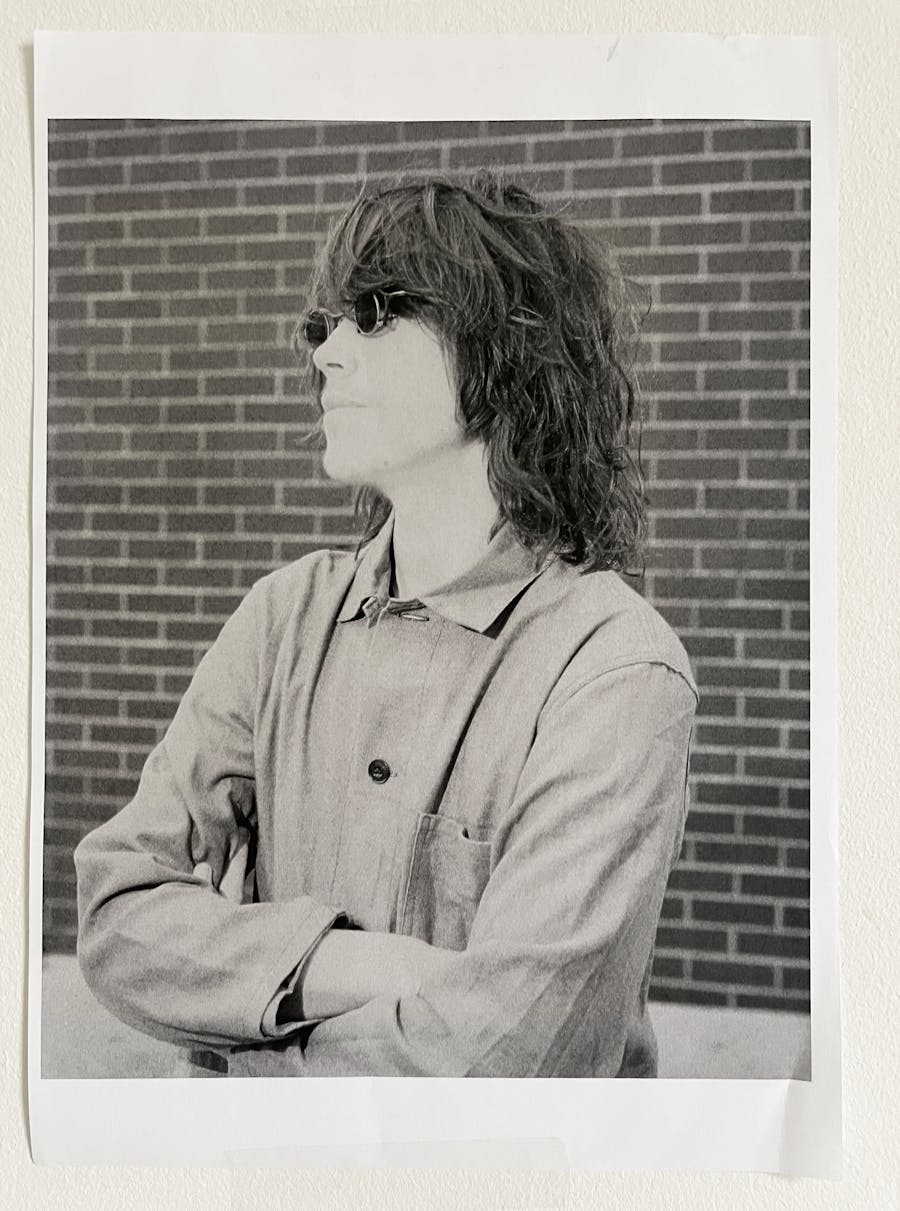Paul B. Preciado lives in an almost empty apartment on Uranus. And even if, in his double role as philosopher and curator, he often has to come back to Earth, his gaze, both critical and caring, remains in the cosmos. Born a woman in the north of Spain, author of The Counter-Sexual Manifesto, Testo Junkie and recently An Apartment on Uranus, Paul B. Preciado, a philosopher specializing in questions of genre, a transfeminist and pupil of Derrida, seeks to demolish the binaries established by patriarchal power by working in the interstices, in multiples, by navigating the in-between, without necessarily passing from one point of view to another. A titanic work of ceaseless deconstruction which he accomplishes with great calm and hopefulness. For him, serenity is the only possible attitude in the face of the obvious: this world is destined to perish, so we must take upon ourselves the task of building a new one. With the determination which such a position demands of the person who holds it, with the power of the emancipated and the giddiness of the dreamers of the real, Paul B. Preciado has embarked upon this crossing and started outlining this new world. Today he describes it to us for Exhibition.
For you, as someone who studied philosophy with Derrida, what is deconstruction? Is it about demolishing, recreating or re-establishing?
⏤ I have a personal history with this term. I constructed myself in deconstruction. I was Derrida’s student in New York and then I followed him to Paris. At his side, I witnessed how the concept of deconstruction evolved, from a being a debate within philosophy, to becoming a pop concept. To a lot of people, the philosophical concept of deconstruction may appear abstruse and complicated. For me, it was part of daily life. I experienced it as a new language I was learning, one that was very powerful and enormously efficacious. A language with which I could read the matrix – a little bit like a coder would do. Deconstruction represented enormous freedom. In the past, texts were organized vertically: there was the Bible, metaphysics, science, literature, popular culture, etc. Everything was in a great tower, hierarchized. Derrida (and Nietzsche before him) dealt a blow to this tower, collapsing it on to the horizontal plane. And there, texts could interpenetrate: a religious text could suddenly turn up in a musical comedy, for example.
At the same time, a new feminism was developing in New York. What connection did you make between the two things?
⏤ Gay and Lesbian Centre, where I went practically every day. My routine was basically the same every day: I would take a class with Derrida, Judith Butler, Jacquie Alexander or Nancy Fraser and then I would go to the BDSM workshops at the Gay and Lesbian Centre. The freedom I had, in terms of a critical reading of history and philosophy, led me to consider as an object worthy of philosophical analysis some things which until then had seemed unimaginable. Thanks to this back-and-forth between philosophy and minority sexual movements, I was able to modify myself. Make something else of myself. I wanted to approach my subjectivity, my normative identity, as something that could be deconstructed and modified.
Was it then that your subjectivity and your identity became spaces in which to experiment with deconstruction?
⏤ I don’t talk about bodies more than other philosophers. The fact that I’m trans pushes people to that conclusion. A lot of philosophers have a very direct engagement with their body. But a cis male philosopher has not necessarily had to call his body into question, because it has been at the centre of philosophy for centuries, it is completely legitimized. On the other hand, there are bodies that, historically, have never been deemed subjects capable of producing knowledge or understanding, which have never been deemed citizens, etc. I’m not thinking only of trans people, but also of women, people of colour, people declared mad, the so-called disabled, and of migrants nowadays. Indeed, it was in deconstructing the binary concepts that dictate our reading of the world that I found myself talking about bodies and sexualities. Our thinking is forced to organize itself around concepts which have been historically constructed and which also inscribe power relations: human/animal, inside/outside, man/woman, white/non-white, false/true, national/foreign, &c. To help us free ourselves from this, deconstruction showed us how to push the subaltern term to the centre of the reading to topple the binarism. In The Counter-Sexual Manifesto, for example, I made use of the dildo (a proscribed object thought of as a prosthetic penis) to overthrow the definition of masculinity and bring back into play the regime of sexual difference. It was in itself a very Derridean exercise. Moreover, Derrida was the first person who read it; he even gave me some notes making me promise not to tell anyone. He had already been criticized enough himself to be able to put up with being associated with my dildos (laughter).
In deconstruction, is it possible to always remain in the interstices?
⏤ The figures of deconstruction are ghosts, revenants, monsters, creatures from the in-between, which defy binaries. Being trans, I myself have ended up incarnating a figure of deconstruction (laughter). In refusing to be assigned an identity, I am paradoxically trying to construct a deconstructive position. When I criticise identity politics, I draw a distinction between identity and subalternity. Trans identity, for example, is still in a process of construction, legally and bureaucratically. Sometimes, therefore, we need to demand it as openly and as radically as possible, given the risk of reproducing a process of trans normalization. The situation is similar for migrants and for anti-racist and anti-feminicide movements.
The younger generation is often presented as being one capable of overturning the old world and moving beyond the binary framework. What do you think?
⏤ Teenagers today – the Greta Thunberg generation – have been preceded by a generation – people in their 30s today—who wanted to change the neo-liberal framework from within, and who were crushed by the system. The next generation have said: enough. Young people today seem to believe in the possibility of radical change, they are a revolutionary generation. I feel closer to them; my generation was content to negotiate for its freedom with its oppressors. Today, the life of the planet is no longer negotiable, nor the lives of people on the borders, the lives of women are no longer negotiable, the freedom to do what we want with our bodies is non-transferable. I recently gave a talk in Spain at an organization for the parents of trans and non-binary children aged between 4 and 18. There I found myself among the children of Uranus. It was magnificent. They are the proof that we are living through a paradigm shift: sexual difference does not exist, it is a construct. Finally we will have to recognize the radical multiplicity of living beings, and accept the idea of extending this to all beings, like animals and rivers for example. Did you know that the EU now recognizes robots as political subjects? Here we have the proof that we can no longer think in terms of the binary prisms opposing the human and the animal, the natural and the technological, the feminine and the masculine, white and non-white.
Has this paradigm shift already begun?
⏤ Yes, or at any rate it is inevitable. Just as it is inconceivable to us that someone’s skin colour should appear on their identity card, in the future we will see the inscription of male or female sex on identity documents as an act of discrimination. And I want to make it clear that this isn’t ideological; I’m just noting the pressures of reality. One child in every 400 cannot be assigned a binary sex at birth. Considered to be ‘intersex’, they are subjected to a whole series of chemical and surgical operations to make them conform to a normative masculinity or femininity. I reiterate: this isn’t theory, this is reality. And in fact this is what happens to all of us when we’re born: we are all the object of a discriminatory diagnosis at birth, at the moment when sexual difference is assigned, our whole subjectivity is moulded, constructed to respond to and conform to a set of expectations. In transfeminist theory, we are proposing a paradigm shift, namely accepting that a body can be recognized as a political subject without being considered as a force for production or reproduction. It must simply be accepted as a living body.
Speaking of bodies, what relationship do you have with fashion as a space of analysis?
⏤ I’m very interested in it. Fashion is to the body what architecture is to space. It is a key domain for understanding bodies and the construction of gender and sexuality. Just recently I was discussing it with the artist Dominique Gonzalez-Foerster – we’re working together a lot at the moment – and we were saying that politically, everything would be completely different if our skin were transparent and we could observe everything that was going on inside it. Skin makes us imagine the body of the other. Clothes produce the same effect. It is a second layer of skin which participates in the political and social construction of difference, be it sex, class, race, age, etc. All developments in the history of feminism have been accompanied by a radical transformation in fashion. What is clear is that if we are moving in the near future to a regime of non-binary sexuality and gender, it will certainly have consequences for fashion. But fashion can be very normative. It has become an arm of the textile industry, which is one of the world’s worst polluters – just as cinema has become an arm of the Hollywood culture industry. As a result, it must absolutely be subject to critique. And I think it’s only got a few years left.
You pronounced this death sentence on the occasion of the most recent Paris Fashion Week, in your review of the Balenciaga show, which was published in Libération. What have you taken away from Demna Gvasalia’s ideas?
⏤ What interests me about Balenciaga, or other fashion houses, is the greater design which lies behind the clothes. I very much liked Gvasalia’s gesture, that of representing the show like a Parliament. And it hit the mark, because we need a Global Fashion Parliament which would bring together the major names in the textile industry, the proprietors, the polluters, the creators and the consumers to decide collectively the fate of the industry. The major labels have an enormous responsibility, from which there is no getting away, and fashion cannot be reduced simply to considerations of style. It must recognize its responsibilities in the domains of economics, gender and sexuality. Fashion must involve itself in these questions and take a stance on them. Or just decide, quite simply, to cease production. I think that Balenciaga will be the organizing force behind this Parliament, which will come into being, I hope.
Beyond fashion, what did the show say about our world, do you think?
⏤ Just like Gvasalia, I am in favour of stopping for a while, of a general moratorium while we all come together. We would have to close universities, factories and museums, we would have to stop production, no more fashion or cars for, I don’t know, let’s say…10 years. That would enable us to rethink everything, absolutely everything. We would form large Parliaments in every region, in which we would all be able to rethink the world. I think the day is coming, because soon we won’t have a choice. What will we do when Venice is under water? When the last indigenous peoples of the Amazon have been exterminated? It will be too late. So we may as well decide to stop everything and reconstruct everything as of now.
And bodies?
⏤ Gvasalia’s imaginary Parliament was populated with unusual bodies, very different bodies, calling into question the normative model of masculinity and femininity. What I like about this is that the clothes are in the service of a critique of the world, and not the other way round. More and more often, fashion houses present their male and female collections in one show, without making a distinction. At the start of my transition, I realized how impermeable the boundary between wardrobes is. Fashion is a technique for producing and verifying sexual difference. It also has the power, however, to participate in the downfall of this regime.
Translated in to English by Sara & Emma Bielecki.


